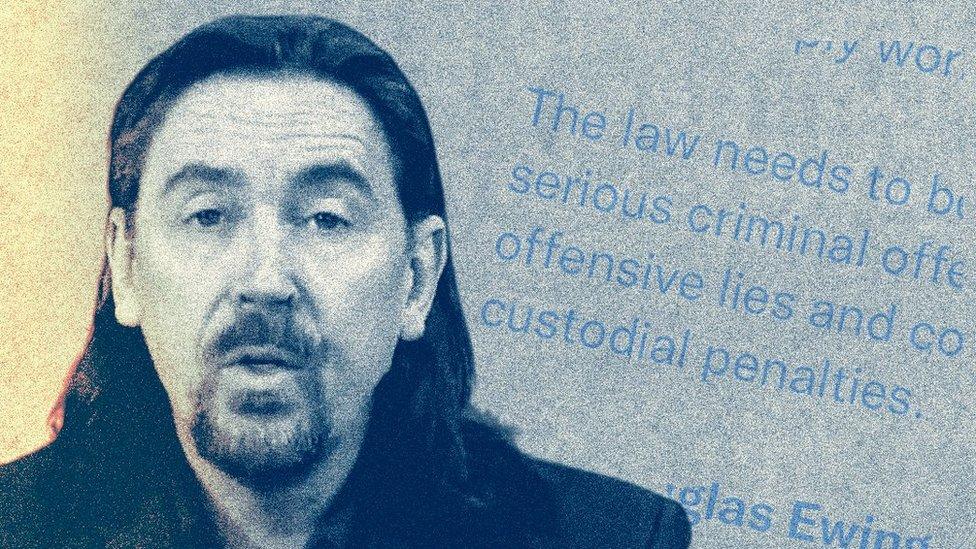Sainsbury's apologises after conspiracy newspapers found in stores
- Published
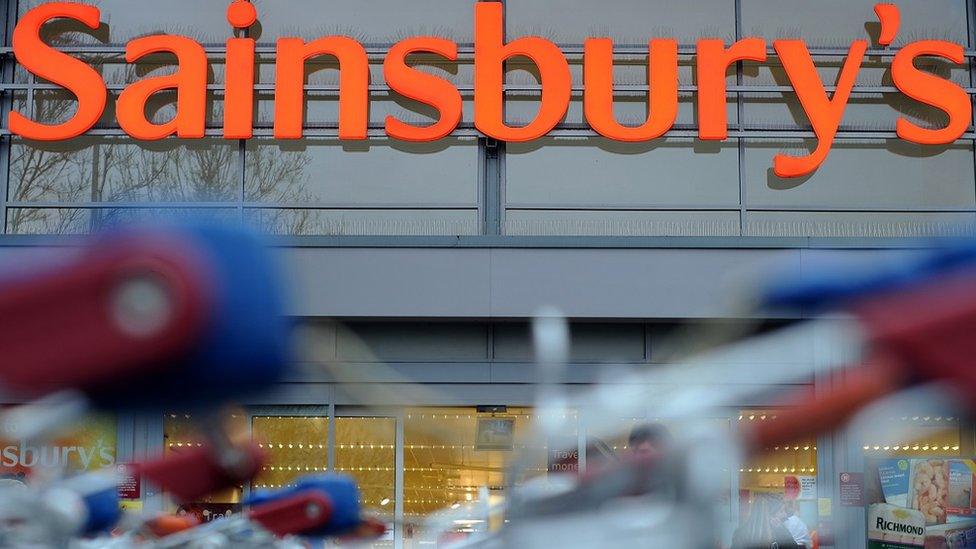
Sainsbury's said the controversial newspaper had been left in two of its stores without permission
Supermarket giant Sainsbury's has apologised after piles of an "extremist" conspiracy newspaper were found at two of its stores.
Copies of The Light, which has previously called for executions of politicians and doctors, were left at branches in Surrey and East Sussex.
Supermarkets routinely offer up copies of free newspapers and periodicals to their customers.
But Sainsbury's said The Light was being left without its permission.
"We do not stock this newspaper and it is removed from any stores where it's left," the spokesperson said.
"We apologise for any upset caused."
The Light was found at stores in Warlingham and Newhaven, with retired detective chief inspector Andrew Smith telling the BBC how he found copies among free newspapers.
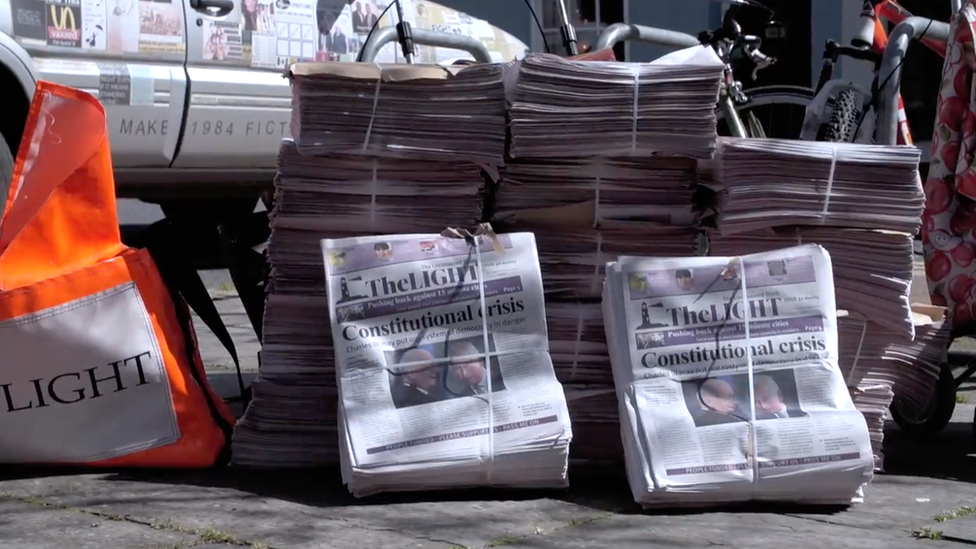
Bundles of copies of the Light were previously piled up at a protest in Totnes
Mr Smith said The Light was an "extremist pamphlet".
"The language of The Light reminds me of the type of propaganda that extreme activists use, presenting wild, biased and deliberately provocative claims as fact," he said.
"I could hardly believe this was being made available in a local branch of Sainsbury's."
Mr Smith said he had spoken with the manager, who withdrew the papers and was investigating where they came from.
Sainsbury's said colleagues were told to remove any copies.
The Light, which was recently investigated by BBC Verify - the BBC's disinformation team - has been shown to have links with the British far-right and was associated with anti-vaccine and anti-lockdown views during the pandemic.
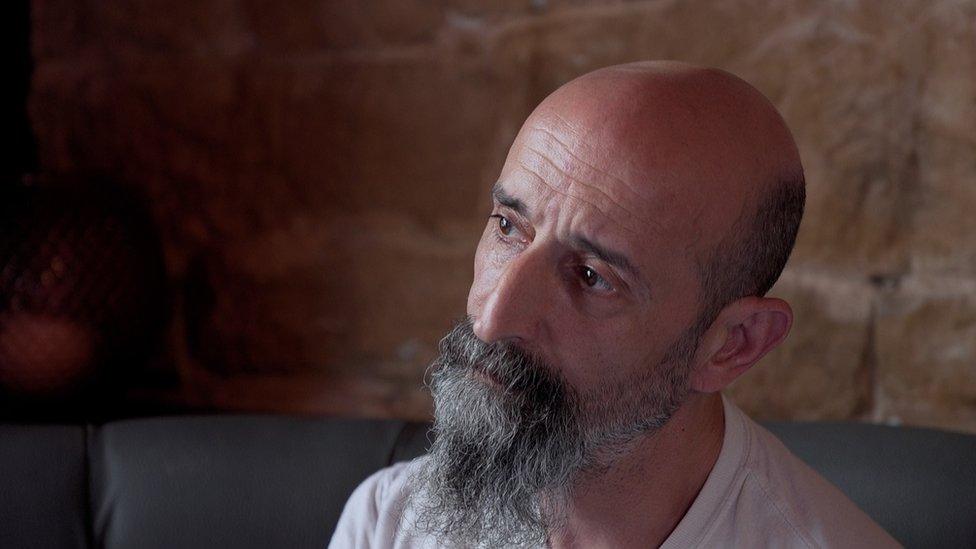
Darren Nesbit, who also goes by the name Darren Smith, has defended the paper's right to publish controversial opinions
The controversial paper, which prints at least 100,000 copies a month and has more than 20,000 subscribers on social media site Telegram, regularly posts content such as anti-abortion and climate-change denial articles.
In one of the papers found by Mr Smith, the paper condoned the use of force to defend against "aggressors" in power.
Darren Nesbitt, editor of The Light and founder of a business that sells anti-vaccine T-shirts and 9/11 conspiracy merchandise, previously defended the publication's stance on use of force, claiming it was a matter of "self-defence" in instances of new lockdowns, or what he described as "forced evacuations".
Distribution of the paper relies on a scheme called "wake up your neighbours" that encourages paid members to deliver papers to "nominated streets" in their area.
Copies have previously been found in coffee shops, hair salons, and pubs across the country.

Follow BBC South East on Facebook, external, on Twitter, external, and on Instagram, external. Send your story ideas to southeasttoday@bbc.co.uk, external.
- Published11 June 2023
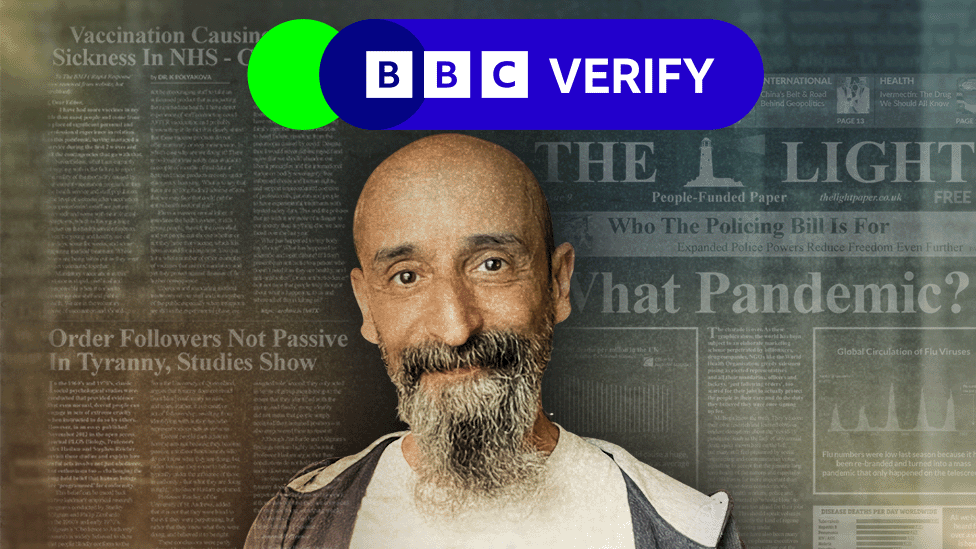
- Published8 April 2023
